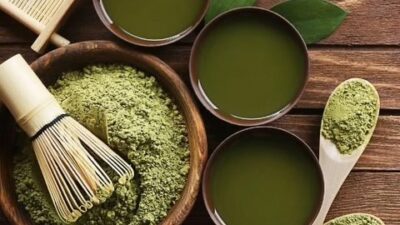What is Spirulina?
Spirulina is a type of bluish-green algae that grows in oceans and salty lakes in subtropical regions. It is known as a superfood due to its rich content of plant pigments and its exceptional ability to regulate photosynthesis, making it a popular ingredient in dietary supplements. Spirulina has a bitter taste, so it is often mixed with yogurt, juices, or beverages to gain its benefits without tasting its bitterness.
Key Benefits of Spirulina
- Cancer Resistance
Chronic inflammation can lead to many diseases, including cancer. Spirulina contains antioxidants that fight chronic inflammation, such as phycocyanin, which contributes to its antioxidant and tumor-inhibiting properties. One study found that taking 1 gram daily for one year reduced the occurrence of oral cancer lesions by 45%. - Prevention of Heart Disease
Spirulina helps lower bad cholesterol (LDL) and triglycerides while raising good cholesterol (HDL), reducing the risk of clots and heart disease. In one study, taking 1 gram daily resulted in a 16.3% decrease in triglycerides and a 10.1% reduction in bad cholesterol. - Reducing Allergic Rhinitis Symptoms
A study showed that spirulina helps relieve symptoms associated with allergic rhinitis, such as congestion, sneezing, and itching caused by allergens like pollen and animal hair. - Regulating Blood Sugar Levels
Studies have shown that spirulina can significantly reduce blood sugar levels. In a study involving type 2 diabetes patients, taking 2 grams of spirulina daily lowered blood sugar levels, decreasing the risk of death related to diabetes. - Anemia Treatment
Research indicates that spirulina can increase hemoglobin content in red blood cells and improve immune function, helping to treat anemia. - Immune System Support
Thanks to its high antioxidant and vitamin content, spirulina enhances the production of white blood cells and antibodies, boosting the body’s immunity. - Enhancing Muscle Recovery
Some studies suggest that spirulina may improve muscle endurance and reduce oxidative stress. - Other Benefits
- Reducing appetite and aiding weight loss.
- Improving digestive health.
- Detoxifying the body.
- Reducing feelings of fatigue.
Nutritional Value of Spirulina
One tablespoon of dried spirulina powder (about 7 grams) contains large amounts of vitamins and minerals such as protein, B vitamins, copper, and iron. It also contains antioxidants like phycocyanin. Spirulina provides significant amounts of magnesium, potassium, and manganese, with only 20 calories and 1.7 grams of digestible carbohydrates.
How to Use Spirulina
Spirulina is available in powder or tablet form and can be used in various ways, including:
- Adding it to smoothies or juices.
- Sprinkling it on salads or soups.
- Taking it as a dietary supplement.
- Mixing it with other beneficial ingredients.
Spirulina Side Effects
Consuming large amounts of spirulina can cause side effects such as nausea, diarrhea, headache, and dizziness. In rare cases, spirulina can trigger severe allergic reactions. It is advised not to use spirulina during pregnancy, for children, or for people with autoimmune diseases.
Conclusion
Spirulina is a nutrient-rich sea algae that offers a wide range of health benefits, from supporting the immune system to improving heart health and helping regulate blood sugar levels. Adding spirulina to your diet is an excellent choice for enhancing overall health, but it is important to consult a doctor before starting it as a dietary supplement.




